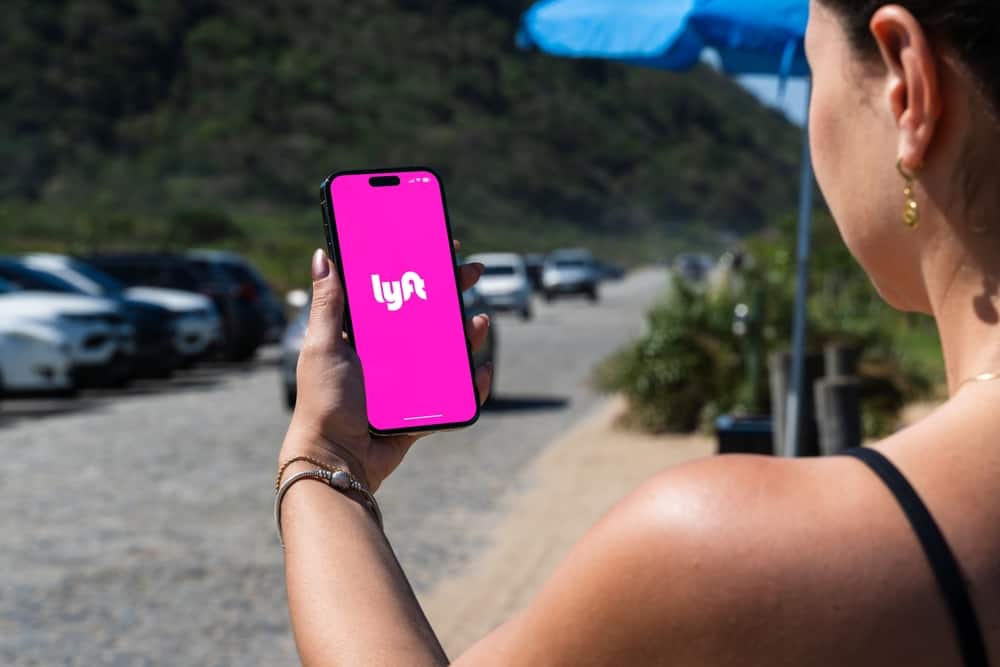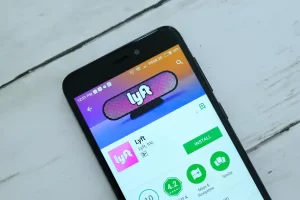Colorado lawmakers have introduced a new bill to strengthen safety measures for rideshare users, requiring companies like Uber and Lyft to implement more stringent security protocols. The Transportation Network Company Consumer Protection Act would mandate comprehensive background checks on drivers, require companies to track and report violent incidents, and enforce identity verification methods to confirm that the person behind the wheel matches the registered driver, Colorado Public Radio KUNC News’s Bente Birkeland reported.
The proposal comes just one month after Democratic state Rep. Jenny Willford of Northglenn filed a lawsuit against Lyft following her alleged sexual assault by a driver in February 2024. At the bill’s unveiling, Willford stated that since sharing her story, she has heard from survivors nationwide who have experienced similar incidents.
“What I know is that these stories are the tip of the iceberg and they’re underreported. What happened to me should have never happened, and I don’t want it to happen to anyone else ever,” said Willford.
How Does Colorado’s Rideshare Safety Laws Compare To Other States?
In 2014, with the passage of Senate Bill 14-125, Colorado became the first state to enact a law regulating TNCs like Uber and Lyft. Although Colorado SB 12-125 was pioneering at the time, the state’s anti-rideshare sexual assault laws have not been significantly updated since. In contrast, many states have enacted more stringent measures in recent years. For instance, in 2020, California voters approved Proposition 22. The measure is better known for classifying app-based transportation and delivery drivers as independent contractors. However, it also mandated several safety and health provisions, including mandatory safety training programs for drivers to ensure they adhere to safety protocols, criminal background checks, and zero-tolerance policies for drugs and alcohol.
New York State enacted the Transportation Network Company (TNC) Act in 2017, mandating background checks, insurance requirements, and operational oversight for rideshare companies statewide. New York City enforces stricter TLC licensing, driver training, and drug testing.
Nationwide, in 2023, the Samantha L. Josephson Ridesharing Safety Act was signed into law by President Joe Biden. The Act was introduced to further enhance passenger safety by requiring visible identification for rideshare drivers. The legislation, known as Sami’s Law, was named in honor of a 21-year-old college student from South Carolina who was murdered in 2019 after mistakenly entering a car she believed was her Uber.
Despite the federal legislation and strengthening of some state laws, more needs to be done to hold Uber and Lyft accountable for failing to enforce stronger safety protocols.
The Resistance of Rideshare Companies To Background Checks
In a statement regarding the Colorado rideshare sexual assault safety proposal, Lyft said it was committed to rider safety. “Safety is fundamental to Lyft, which is why we’ve worked to design policies and features that help protect both drivers and riders.”
However, Lyft also warned that fingerprint-based background checks—one of the key requirements in the Colorado proposal—can be unreliable, incomplete, and potentially discriminatory against minority communities. Uber, meanwhile, expressed concerns that the bill’s stringent requirements could jeopardize its operations in the state, potentially reducing service availability and limiting work opportunities for drivers.
The bill also includes provisions requiring vehicles to have dash cameras or biometric scans to verify the driver’s identity, an approach that has gained traction nationwide. Lawmakers backing the bill argue that rideshare companies have historically prioritized profits over passenger safety.
“It sucks, in a commuter city, in a commuter state, that we have to put ourselves at risk when we want to do the right thing of, maybe, reducing emissions in our air, maybe because we don’t want to drive home drunk,” said Democratic Rep. Lorena Garcia of Adams County.
As rideshare safety concerns continue to mount, other states may follow Colorado’s lead in implementing more stringent security regulations.
Rideshare Sexual Assault: Notable Legal Actions in Colorado
The most recent notable rideshare sexual assault claim was filed in January 2025 by Willford. As mentioned, Wilford filed a lawsuit against Lyft, alleging she was sexually assaulted by a driver in February 2024. The driver reportedly made inappropriate comments and attacked her as she attempted to exit the vehicle. Investigations revealed the driver was using a Lyft account under Shanu Transportation, a company authorized only for property transport. Wilford’s case likely served as a catalyst for the enhanced rideshare safety legislative proposal.
The most notorious account of rideshare sexual assault was committed by John Pastor-Mendoza, who in 2022 faced 41 felony counts for allegedly kidnapping, sexually assaulting, or attempting to assault at least 12 women. A well-known Denver nightclub in RiNo, Tracks, was instrumental in helping identify Pastor-Mendoza, who, in October 2024, was found guilty of 30 charges.
On March 7, 2025, Pastor-Mendoza was sentenced to 290 years to life in prison by a Denver judge, The New York Times reported.
(Denver ABC News affiliate, Denver7.com profiled six rideshare assault survivors who spoke publicly for the first time about their horrific experience.)
Should Uber and Lyft Be Held Responsible For Rideshare Impersonators?
Pastor-Mendoza was posing as a rideshare driver. Despite not being a contractor for Uber or Lyft, these rideshare companies bear some of the responsibility. For starters, Uber/Lyft can implement more real-time identity verification, such as QR-code scanning between drivers and riders, which could reduce impersonation attempts. In addition, Uber/Lyft market themselves as a safe alternative to taxis. Thus, they should ensure their platforms don’t enable impostors.
Moreover, Uber and Lyft do little to educate the public on verifying drivers. Not only that, but they distribute recognizable decals that can be misused. Fake drivers often get access to these stickers, and rideshare companies could do more to track and regulate them.
One solution for reducing rideshare assault is using geofenced pickup zones, whereby venues could work with rideshare apps to create verified pickup areas monitored for impostors.
How Prevalent Are Rideshare Sexual Assaults Nationwide?
Uber released its first U.S. Safety Report in December 2019. The report covered incidents from 2017 and 2018 and revealed that 3,045 sexual assaults were reported in 2018 alone, with a total of 5,981 sexual assault allegations over the two-year period. The second U.S. Safety Report was published in June 2022, covering 2019 and 2020, and showed a 38% decrease in reported sexual assaults, with 3,824 incidents recorded over that time frame. Although the decline is encouraging, even one sexual assault is one too many.
As for Lyft, it released its first-ever safety report in October 2021, covering incidents from 2017 to 2019. According to the report, Lyft received 4,158 reports of sexual assault during that period. Unlike Uber, Lyft has not yet released a second safety report with updated statistics. The company has faced criticism for this, especially as lawsuits from survivors continue to emerge, alleging that Lyft has not done enough to protect passengers from sexual assault.
If you or someone you know has experienced assault or misconduct during a rideshare trip, you may have legal rights. SurvivorsRights.com can help connect you with attorneys who specialize in holding rideshare companies accountable. Visit our Uber Sexual Assault Lawsuits and Lyft Sexual Assault Lawsuits page to share your experience and explore your legal options confidentially.




